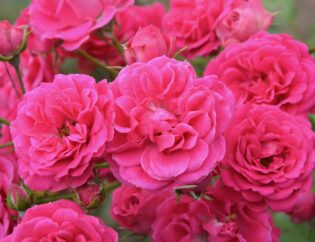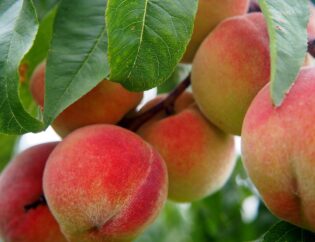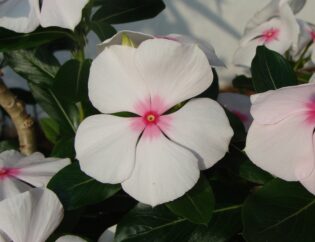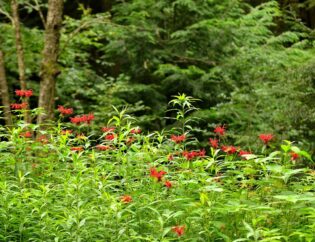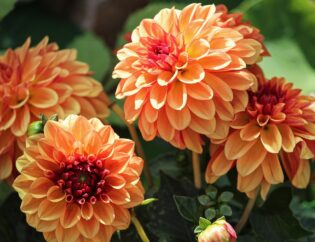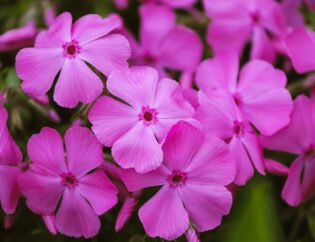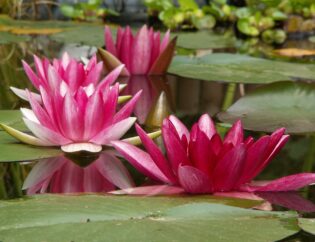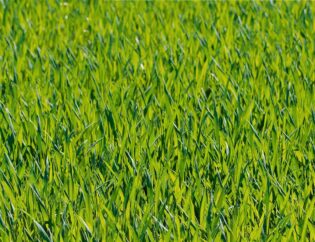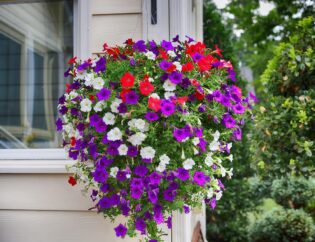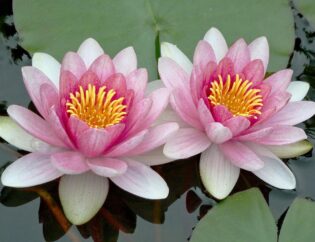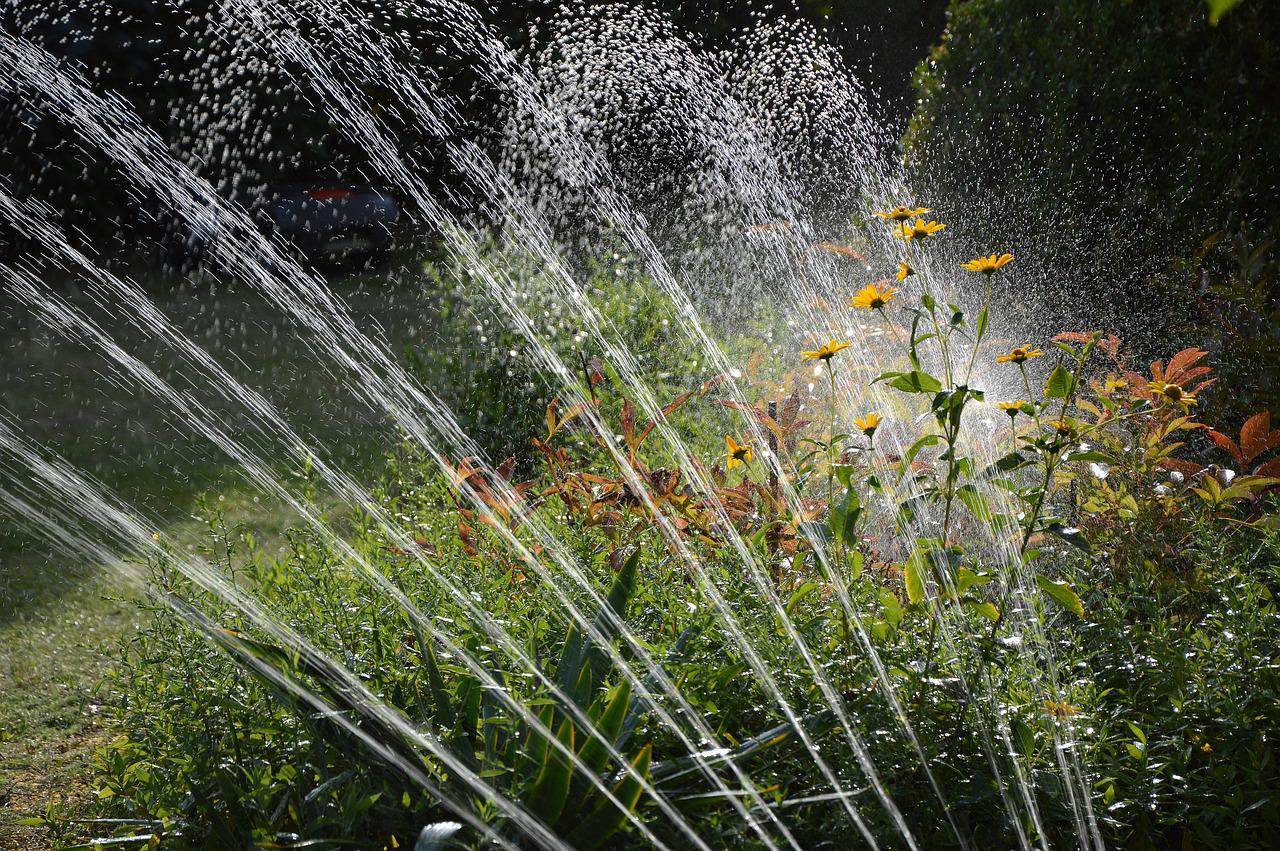
The proper amount of water is essential for a gorgeous lawn and garden in Atlanta. This puts an automatic landscape irrigation system at the top of many homeowners’ list of necessities. After all, who really enjoys watering their yard every single day?
Check out the options for watering any type of landscaping here!
Benefits of an Irrigation System
Though it takes some effort to install an irrigation system, the benefits greatly outweigh the inconvenience of getting started. An automatic irrigation system:
- Ensures the landscaping receives the right amount of water
- Conserves water by targeting the plants
- Reduces excess water runoff
- Applies water evenly
- Saves money by reducing water use
The Main Types of Residential Watering Systems
There are four main types of residential irrigation systems that homeowners can choose from. Each method has its advantages and disadvantages. Here’s a quick description of each to help you decide which is the best method for you.
Sprinkler Landscape Irrigation Systems
Sprinkler systems are what most people think of when someone mentions a landscape irrigation system. These systems are made up of a series of underground water pipes that feed sprinkler heads placed strategically throughout the landscaping. These heads may be fixed or they may pop up as the start of an irrigation cycle.
The system waters the landscaping as needed. Some systems work on a timer and smart systems even take precipitation into account to determine how much water to release.
Sprinkler systems (particularly smart systems) are excellent for reducing water waste. However, there is still some water waste through evaporation and excess spray. There can also be extra water runoff in steep yards or those with clay-based soils.
Drip Irrigation Systems
Drip irrigation systems virtually eliminate the evaporation and overspray issues. Water pipes running through the yard carry water directly to the plants’ roots. Water is released through emitters that can be customized to each plant’s individual needs.
This irrigation system is an excellent choice for people with clay-based soil as the water is released slowly. This gives the ground a chance to soak up the water before it runs off. Drip irrigation systems can also be connected to a timer or smart controller for more refined control.
The main tubing is usually buried, but most emitters must stay above ground to avoid clogs. Unfortunately, any tubing above ground is susceptible to damage from exposure to the elements, animals, people stepping on them, or getting hit by garden tools.
Manual Watering
Manual watering is labor-intensive. Watering with a garden hose, watering can, or moveable sprinkler all counts as manual watering.
The major drawback is the time it takes. Homeowners have to remember to move the sprinkler and they have to go out every day to water their plants with the hose or watering can.
This system also wastes the most water. People forget to move the sprinkler, water gets sprayed needlessly, and there is a lot of run-off. Sometimes, a running hose and sprinkler are forgotten overnight leading to wasted water and a soggy lawn.
Life happens, and it’s no fun to be out at 11pm watering the yard. As a result, manually watered landscapes are prone to dry patches and lawn yellowing. A system with a timer puts the daily needs of the yard on autopilot.
Blended Irrigation Systems
Blended systems offer homeowners the best of all worlds. Every landscaping design is unique and will have different watering needs. For instance, landscape ferns require consistent water but drought-tolerant perennials can handle less. Blended systems are well suited to meet these needs.
For example, homeowners might use a drip irrigation system in areas of the yard with small shrubs, trees, or boxwood hedges. But their system may include an automatic sprinkler section to keep the open area of the lawn watered properly.
The Importance of Automation
Programmable timers or smart controllers help homeowners put their lawn and garden irrigation on autopilot so they don’t have to worry about it constantly.
Even those who are always home will find keeping their yard watered to be quite the chore. Many plants must be watered daily, especially during heat waves. New plants must be watered more often and keeping track of it all gets tedious quickly.
Watering even becomes an obstacle to weekend trips. Homeowners have to coordinate watering to ensure the health of their landscaping while they are gone.
Use a Rain Sensor
A rain sensor is an important feature for those who live in dry areas or who are concerned with saving water. These sensors will detect the moisture content in the soil and automatically adjust watering times to accommodate.
Water at the Right Time
Watering at the wrong time can lead to wasting a considerable amount of water. Imagine what happens when plants are watered in the middle of the day. The intense sunlight will evaporate a portion of the water before the plants have a chance to soak it up.
Thus, it is better to water during the cooler parts of the day. This means both early morning and evening. However, morning is the best because leaving the plant leaves wet all night can encourage fungal diseases.
Choose the Right Perennials
Choosing the right plants also has a huge impact on a landscape’s water efficiency. Pick plants suited to the characteristics of the location. For example, choose sun-loving plants like black-eyed Susans or coneflowers for full-sun locations and shade-loving plants like bleeding hearts for shady locations.
Stick with native grasses and plants for the easiest maintenance and consider the yard’s typical conditions. Is the yard often wet and boggy? Choose plants that grow well in wet conditions.
Keep the System in Good Working Order
Landscape irrigation systems don’t last forever. Sprinkler heads give out around 7-10 years and drip hoses can be damaged over time and need replacing.
Perform regular inspections and make repairs as needed to ensure system efficiency and effectiveness. Remember, even just a few days without water can damage some types of plants so it’s important to make sure the system is effective.
Prefer to Keep Your Saturday?
Let us take the yard off your plate and give you back your weekend! We have over 35 years of combined experience caring for Atlanta-area yards and landscapes. Our landscaping services experts are standing by to help you achieve the outdoor space you’ve been envisioning. Contact us today to get going on your next project!
